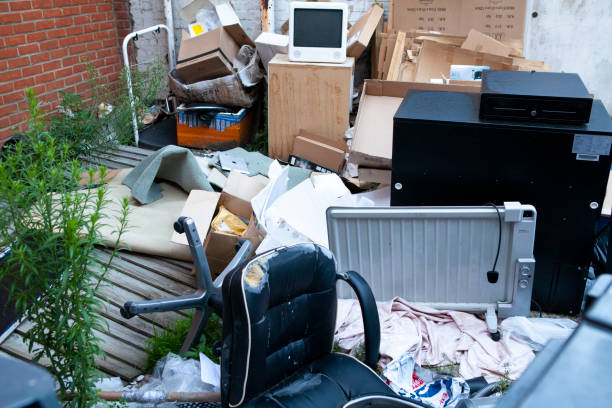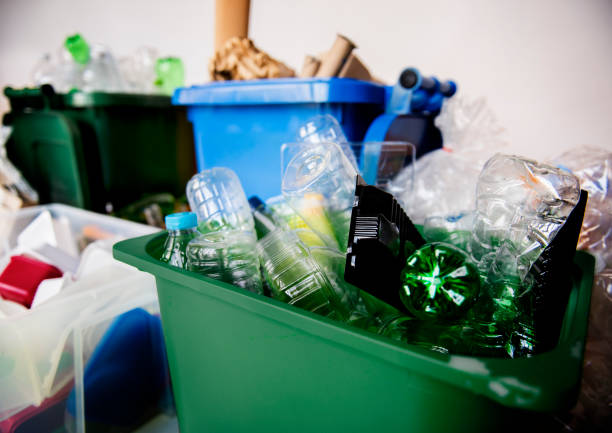What happens to all the rubbish in the UK
Overview of the UK’s Waste Management System
The UK’s waste management system is crucial in handling the nation’s rubbish, employing various strategies and regulations to ensure effective disposal and recycling. This system comprises several key components, including waste collection, treatment, and disposal.
Waste Collection
Waste collection is the initial step in the process. Local councils provide households with different bins to separate recyclable and non-recyclable materials. These bins are collected on a regular basis according to specific schedules, ensuring that different types of waste are handled appropriately.
Waste Treatment
Following collection, waste treatment aims to minimize environmental impact, especially for municipal waste. This involves sorting recyclables from general waste. Recycling centers then process these materials, converting them into new products. This step is crucial for reducing the volume of waste sent to landfills and promoting the reuse of resources.
Handling Non-Recyclable Waste
Non-recyclable waste is typically sent to Energy-from-Waste (EfW) plants where it is incinerated to generate electricity or heat. This method not only prevents the accumulation of waste in landfills but also harnesses the energy contained in the waste, contributing to the country’s energy supply.
Landfill Use
Although landfill remains an option for residual waste, the aim is to minimize its use. Recycling and energy recovery methods are prioritized to reduce the reliance on landfills, which are detrimental to the environment due to greenhouse gas emissions and other pollutants.
Case Study: South Oxfordshire District Council
An exemplary program by the South Oxfordshire District Council highlights the effectiveness of the UK’s waste management system. The introduction of food recycling bins has significantly diverted waste from landfills, thereby reducing greenhouse gas emissions. This initiative demonstrates the council’s commitment to sustainable waste management and environmental protection.
Waste Collection Process in the UK
The waste collection process in the UK is a well-organized and efficient system. Here’s how it works:
| Waste Collection Process | Details |
|---|---|
| 1. A focus on the lifecycle of plastic bottles from use to recycling. Waste generation | Citizens produce waste through various activities. |
| 2. Household waste collection | Local councils provide bins for separating waste. |
| 3. Kerbside collections | Specialized vehicles collect waste from households. |
| 4. Recycling centers | Citizens drop off recyclables like paper, plastic, glass, and metals. |
| 5. Transfer stations | Waste is sorted and prepared for disposal. |
| 6. Landfill sites | Non-recyclable waste is disposed of underground. |
| 7. Energy recovery facilities | Incineration produces electricity or heat. |
These steps help minimize environmental impact and maximize resource recovery. The government is also promoting recycling awareness and reducing waste generation.
So, let’s do our part too! Let’s strive to reduce our own consumption and keep our surroundings clean and sustainable! Why did the garbage truck start a recycling program? Because it was tired of being dumped on!
Recycling and Waste Separation Efforts: Food Waste, or Any Type of Waste
The UK is making significant strides in its recycling efforts, targeting materials such as paper, glass, and plastic to conserve resources and reduce landfill waste. The nation’s approach involves a comprehensive system of waste sorting, collection, and public education.
Household Waste Sorting
Residents are encouraged to sort their waste into distinct categories: recyclables, food waste, general trash, and specifically, plastic bottles. Local councils facilitate this by providing households with colour-coded bins, making it easier for residents to segregate their waste correctly.
Collection Services
Local councils also offer recycling and rubbish services, regular waste collection services, ensuring that sorted materials are picked up and processed efficiently. These services include scheduled collections for different types of waste, streamlining the recycling process and maximizing resource recovery.
Recycling Centers
For items that cannot be disposed of in household bins, such as batteries and electrical appliances, individuals can take them to dedicated recycling centers. These centers are equipped to handle and recycle materials that require special processing, preventing harmful substances from ending up in landfills.
Public Education and Campaigns
Government campaigns and educational programs in schools play a vital role in raising awareness about the importance of recycling and the challenges of managing tonnes of waste, including plastic waste. These initiatives aim to inform the public about the benefits of recycling and how to participate effectively, fostering a culture of environmental responsibility.
Food Redistribution Initiatives
Supermarkets and charities have collaborated to address food waste by redistributing surplus food to those in need. This not only reduces the amount of food waste but also supports communities by providing essential resources to vulnerable populations.
Incineration and Energy Recovery
Let’s examine the figures concerning incineration and energy recovery in the UK!
| Key Statistics | Numbers related to tonnes of waste and recycling statistics. |
|---|---|
| Waste Incinerated per Year | 10 million tonnes |
| Electricity Generated from Incineration | 1.67 TWh |
| Reduction in Carbon Emissions | 2.5 million tonnes of waste, including a significant amount of plastic waste, are managed annually. |
Besides these stats, it’s important to understand other aspects of incineration and energy recovery. Advanced technologies help minimize emissions and improve energy efficiency when changing waste into electricity. This decreases greenhouse gas emissions, making it beneficial for the environment.
Now, let me tell you a great story about incineration and energy recovery. In Manchester, a waste-to-energy facility has changed thousands of tons of non-recyclable garbage into heat and electricity for local homes. Not only does this reduce landfill dependency, but it also provides a sustainable solution that benefits both the environment and people living nearby, reducing the need for landfill in the UK.
To sum up, incineration and energy recovery are effective strategies for managing waste, including plastic waste, in the UK. With advancements in technology, this process is still essential for cutting down landfill waste and generating clean energy for a better future.
Landfill Disposal and its Impact
Landfills play a crucial role in waste disposal in the UK, but their environmental and health impacts cannot be ignored. The large amounts of rubbish in landfills pose significant problems.
- Firstly, landfills emit harmful gases, contributing to air pollution. Methane, a powerful greenhouse gas produced by the decomposition of organic waste, exacerbates climate change and degrades air quality, increasing the risk of respiratory illnesses.
- Additionally, landfills produce leachate, a toxic liquid formed when rainwater filters through waste. This contaminated liquid can seep into groundwater if not properly managed, polluting water supplies and posing risks to human and animal health.
- Landfills also occupy substantial land areas that could be repurposed for agriculture or recreational activities. The unattractive appearance and foul odors of landfills can negatively impact nearby communities, reducing property values and harming residents’ quality of life.
Given these issues, it is essential to adopt sustainable waste management practices. Recycling and composting can significantly reduce waste production and conserve resources. Supporting government initiatives to decrease landfill use will help protect the environment for future generations. Embracing these practices is crucial for effectively minimizing waste generation.
Initiatives to Reduce Waste Generation
The UK is grappling with its waste management issues, including the export of waste, and has implemented initiatives to decrease waste production. These include:
- Putting in place recycling services and advertising campaigns to boost recycling.
- Replacing disposable goods such as plastic bags and straws with sustainable substitutes.
- Encouraging composting of organic waste to save landfill space and create nourishing soil.
- Designing products that can be reused or recycled, so fewer raw materials are needed.
- Educating people on how to manage waste responsibly.
- Providing businesses with incentives to reduce waste production.
In addition, the UK is investing in modern tech that allows for energy recovery from waste. The Waste Strategy for England in 2000 was a big step towards making a greener future. It set goals to cut down landfill waste and promote alternative practices like incineration with energy recovery. Since then, the strategy has been revised and upgraded to make waste reduction more effective.
Thus, the UK is taking steps to accomplish a brighter future with less waste and a healthier environment for all.
The Future of Waste Management in the UK
The UK’s waste management landscape is brimming with hope. Fueled by technological advancements and a growing environmental consciousness, innovative solutions are emerging. Here’s what’s on the horizon:
- Stronger Regulations and Incentives: Stricter regulations and increased support for recycling will nudge everyone towards a more sustainable future.
- Investing in Infrastructure: Investment in waste reduction infrastructure, from collection systems to sorting facilities, will be crucial for success.
- Collaboration is Key: Governments, businesses, and individuals must all work together. We need comprehensive plans that cover the entire waste journey, from production to disposal. This can involve reducing packaging waste, optimizing waste collection routes through technology, and educating citizens on responsible disposal habits, including what happens to rubbish after it’s collected.
Innovation Drives Progress
Exciting new technologies are changing the game. Smart bins with sensors are helping to optimize collection routes for municipal waste, and resource extraction technologies are making it possible to recover valuable materials from what was once considered junk.
Moving Beyond Landfills
Landfills were once the norm for non-recyclable waste. Fortunately, the export of certain types of waste has been regulated, growing awareness has spurred a shift towards more sustainable practices. Policies that promote recycling goals and divert waste away from landfills are showing progress. Additionally, landfill taxes incentivize businesses and individuals to find alternative disposal options.
Conclusion: Progress and Challenges in Managing UK’s Rubbish
The UK’s waste management system has achieved significant progress alongside notable challenges. Efforts to reduce waste through recycling and improved disposal systems have been successful, yet the increasing volume of waste remains a persistent issue.
Recycling initiatives have played a crucial role in managing the nation’s municipal waste. Comprehensive recycling programs and heightened public awareness have led to a substantial increase in recycling rates. Additionally, the government’s commitment to reducing landfill usage has supported this positive trend.
Despite these successes, managing the vast amount of waste continues to be a formidable challenge. Population growth and consumer-driven lifestyles contribute to an ever-increasing volume of waste, presenting local authorities and waste management organizations with the daunting task of developing effective disposal methods.
To address these challenges, innovative approaches are being explored. For example, advanced sorting technologies are being utilized to more accurately separate recyclable materials from general waste. Moreover, collaboration between industries and policymakers is essential for creating sustainable solutions and minimizing environmental impact.
One example of progress in waste management comes from a small town in the UK. Confronted with limited landfill space, the town launched a community-wide composting initiative. By encouraging residents to compost their organic waste at home, the town significantly reduced its reliance on landfills and promoted sustainable practices within the community.







